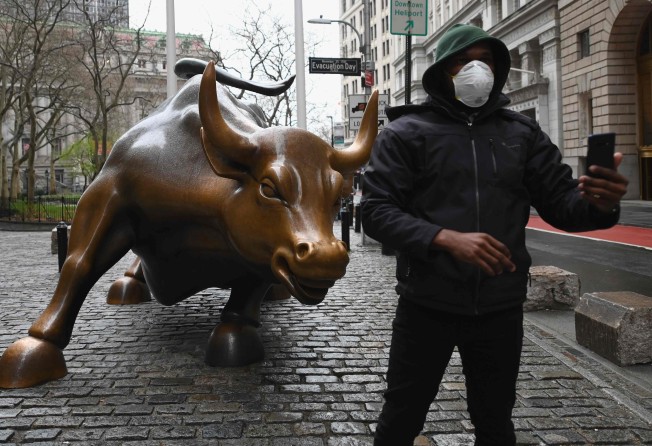The dangerous disconnect between bullish stock markets and a weak global economy
- Central bank liquidity injections are providing huge support for markets. But do these measures show our ability to control the ups and downs of the global economy, or are we just storing up trouble, in the form of a mega correction, for later on?

The days when stock and bond prices could be seen as a reliable indicator of the health of a nation's economy are over, it seems. Central banks now pump in money which serves to reinflate bombed-out financial securities and make a nonsense of traditional risk measures.
This is obvious as stocks in many markets re-enter bull market territory after seeming to head for one of the biggest bear markets of all time. These gains are being measured against immediate post-crash lows, which is like cheering on a boxer who only manages to stagger back to his knees after being knocked down.
The central bank liquidity injections seem almost to guarantee a disconnect between what is happening in the real economy and trends in financial markets. Stocks move to a higher base with each succeeding economic crisis that elicits a monetary response.
Quality doesn't seem to matter. As UN Secretary General Antonio Guterres urges, governments should not be “bailing out outdated, polluting, carbon-intensive industries”. Or as Oanda analyst Jeffrey Halley says, “central banks seem to be prepared to backstop the poorest of investment decisions to keep the lights on in the global economy”.
Junk stocks, along with junk bonds, all get hoovered up in the rush to keep the music going in securities markets. The idea of a purgative correction in share prices is abandoned in favour of the supposedly painless remedy of drinking at the well of central bank liquidity.
Do these measures signal our ability to control the ups and downs of the global economy? Or we are storing up trouble by staving off a mega correction that can only become more painful the longer it is delayed?
Paul Sheard, former chief global economist at S&P Global and now senior fellow at Harvard Kennedy School's Mossavar-Rahmani Centre for Business and Government, cites several factors behind the apparent disconnect between stock prices and the US economy.
According to Sheard, the fact that the S&P 500 index is rallying weeks after falling by 34 per cent from its high, even as the US economy seems set to fall into a bottomless pit, is due in large part to the enormous and rapid injection of stimulus.
This liquidity, says Sheard, “is a huge support for the market, even if it doesn't show up in economic data yet and may not do so for a few months”. It is indeed, and yet stocks are being driven up just when corporate profits are crashing, which is not what is supposed to happen in market economies.
Stocks crashed further and stayed down longer after the global financial crisis, but Sheard, for one, suggests that stocks may not have not gone completely off a cliff this time because this crisis did not originate in the financial system, unlike in 2008.
However, monetary stimulus is the main reason stocks are defying gravity. Controlling stock prices has become a tool competing with interest rate engineering. Stock price manipulation has gone from marginal to mainstream policy.
This is especially true in the US, where, according to Siblis Research, the ratio of stock market capitalisation to GDP had reached around 175 per cent just before the coronavirus crisis – more than double China’s ratio (about 82 per cent) and well above Japan’s (120 per cent).
If you control the price of financial assets, by virtue of being a major buyer of stocks or by monetary stimulus designed to prop up the market, you are in a position to create spending power which then spreads throughout a nation's economy.
But as Hung Tran, former executive managing director at the Institute of International Finance, warns: “We have a huge pile of financial assets on top of a small economic base”, in terms of low productivity and slow potential growth. “The whole thing is very fragile and not sustainable.”
Renewed asset inflation would mean that stock prices could continue to diverge from corporate earnings, making price/earnings ratios virtually meaningless as a gauge of value because investors know that however inflated stock valuations become, there is always the central bank to reflate them.
The concept of pricing would then have little meaning. Just as Modern Monetary Theory threatens to remove all vestiges of fiscal discipline, once faith in the system of prices and value on which economic transactions depend is damaged, the risk of hyperinflation becomes real. That way lies perdition.
Anthony Rowley is a veteran journalist specialising in Asian economic and financial affairs
Help us understand what you are interested in so that we can improve SCMP and provide a better experience for you. We would like to invite you to take this five-minute survey on how you engage with SCMP and the news.